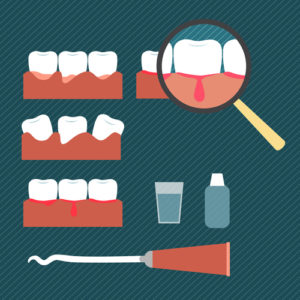Responding to the doubts and questions of patients is one of our daily activities, today we share with you the perplexity of a patient on anticoagulant therapy on the possibility or not of undergoing an oral surgery.
The patient’s concern is the possibility that the anticoagulant therapy may interfere with other dental drugs or that it may be the cause of complications in the intervention phase.
Anticoagulant therapy and oral surgery
 The anticoagulant drugs could cause excessive bleeding during oral surgery and, at the same time, interrupting the anticoagulant therapy could lead to the risk of local or systemic embolic phenomena, including infarction, stroke or pulmonary embolism.
The anticoagulant drugs could cause excessive bleeding during oral surgery and, at the same time, interrupting the anticoagulant therapy could lead to the risk of local or systemic embolic phenomena, including infarction, stroke or pulmonary embolism.
As anticoagulant drugs are among the most prescribed drugs, most dental clinics perform oral surgery, such as tooth extractions, on patients taking anticoagulant therapies daily.
Performable surgery without interrupting anticoagulant therapy
The dental scientific community has issued some guidelines regarding the type of interventions that the dentist can perform without suspending the anticoagulant drugs and without the need to consult the doctor who prescribed drug therapy. The surgical procedures included in the guidelines include:
- extraction of one or two teeth
- simple implant surgery
- insertion of mobile or fixed prostheses

- root canal treatment
- dental restorations
- treatment of mild periodontitis
These are interventions that have a low risk of bleeding and therefore can be performed in total safety for the patient.
Other interventions are instead considered high-risk bleeding, such as:
- extraction of three or more teeth
- bone graft
- care of a deep periodontitis
In these cases the dentist will have to take into account the anticoagulant therapy before proceeding with the operation. This does not necessarily mean suspending the drug, it will be the doctor who evaluates the best solution for that specific case.
How to counteract any excessive bleeding
 In a study published in July 2019 on In a study published in July 2019 on some haemostatic maneuvers are illustrated to which to resort in case of excessive bleeding during an operation on patient in anticoagulant drug therapy.
In a study published in July 2019 on In a study published in July 2019 on some haemostatic maneuvers are illustrated to which to resort in case of excessive bleeding during an operation on patient in anticoagulant drug therapy.
During an oral surgery to stop the bleeding, it is sufficient to compress a gauze over the wound.
If this operation is not sufficient, the dentist can use various precautionary measures, including:
- stitches
- oxidized cellulose
- absorbable sponges
- fibrin glue
- cauterization
- tranexamic acid
Performing oral surgery operations in appropriately equipped dental clinics and with a team of professionals who are always informed and with high skills, also allows the patients on anticoagualant therapy to face dental procedures in total serenity and safety.
















